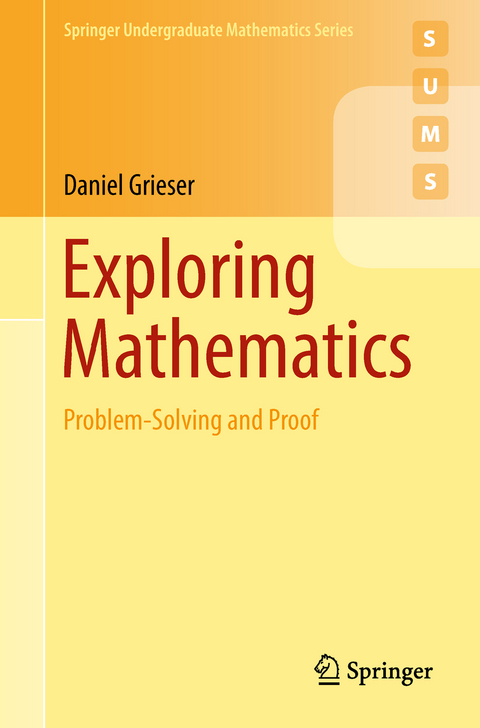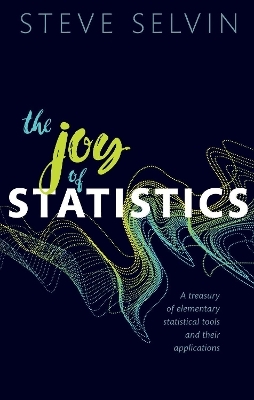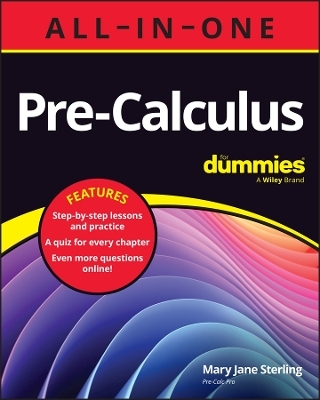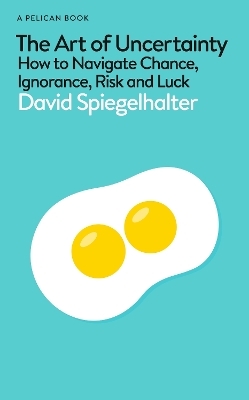
Exploring Mathematics
Springer International Publishing (Verlag)
978-3-319-90319-4 (ISBN)
Have you ever faced a mathematical problem and had no idea how to approach it? Or perhaps you had an idea but got stuck halfway through? This book guides you in developing your creativity, as it takes you on a voyage of discovery into mathematics.
Readers will not only learn strategies for solving problems and logical reasoning, but they will also learn about the importance of proofs and various proof techniques. Other topics covered include recursion, mathematical induction, graphs, counting, elementary number theory, and the pigeonhole, extremal and invariance principles. Designed to help students make the transition from secondary school to university level, this book provides readers with a refreshing look at mathematics and deep insights into universal principles that are valuable far beyond the scope of this book.
Aimed especially at undergraduate and secondary school students as well as teachers, this book will appeal to anyone interested in mathematics. Only basic secondary school mathematics is required, including an understanding of numbers and elementary geometry, but no calculus. Including numerous exercises, with hints provided, this textbook is suitable for self-study and use alongside lecture courses.Daniel Grieser is Professor of Mathematics at Carl von Ossietzky Universität Oldenburg. He works in geometry, analysis and combinatorics. He won a gold medal at the International Mathematics Olympiad and in 2014 he received the Ars Legendi Faculty award for excellent teaching, a national prize awarded in Germany, for developing the course on which this book is based.
Introduction.- 1 First explorations.- 2 Recursion - a fundamental idea.- 3 Mathematical induction.- 4 Graphs.- 5 Counting.- 6 General problem solving strategies.- 7 Logic and proofs.- 8 Elementary number theory.- 9 The pigeonhole principle.- 10 The extremal principle.- 11 The invariance principle.- A A survey of problem-solving strategies.- B Basics on sets and maps.- List of symbols.- Glossary.- Lists of problems, theorems and methods.- Hints for selected exercises.- References.
"Exploring Mathematics can be used as an introduction to mathematical problem-solving, but may be better used as a supplement. I personally found that this systematic review of mathematical topics was refreshing, helping to fill gaps in my problem-solving toolkit. The reader may find it beneficial to use the book to review the fundamentals and enrich their problem-solving knowledge." (Jack Chen, MAA Reviews, January, 2019)
| Erscheinungsdatum | 10.06.2018 |
|---|---|
| Reihe/Serie | Springer Undergraduate Mathematics Series |
| Zusatzinfo | XI, 308 p. 77 illus., 15 illus. in color. |
| Verlagsort | Cham |
| Sprache | englisch |
| Maße | 155 x 235 mm |
| Gewicht | 492 g |
| Themenwelt | Sachbuch/Ratgeber ► Natur / Technik |
| Mathematik / Informatik ► Mathematik ► Mathematische Spiele und Unterhaltung | |
| Sozialwissenschaften ► Pädagogik | |
| Schlagworte | counting principles • Elementary Number Theory • extremal principle • Invariance Principle • Logic • mathematical exploration • Mathematical Induction • Mathematical Problem Solving • mathematical proofs • MSC (2010): 00-01, 00A07, 00A09, 97D50 • pigeonhole principle • Problem Solving • problem solving strategies mathematics • proofs |
| ISBN-10 | 3-319-90319-5 / 3319903195 |
| ISBN-13 | 978-3-319-90319-4 / 9783319903194 |
| Zustand | Neuware |
| Informationen gemäß Produktsicherheitsverordnung (GPSR) | |
| Haben Sie eine Frage zum Produkt? |
aus dem Bereich


